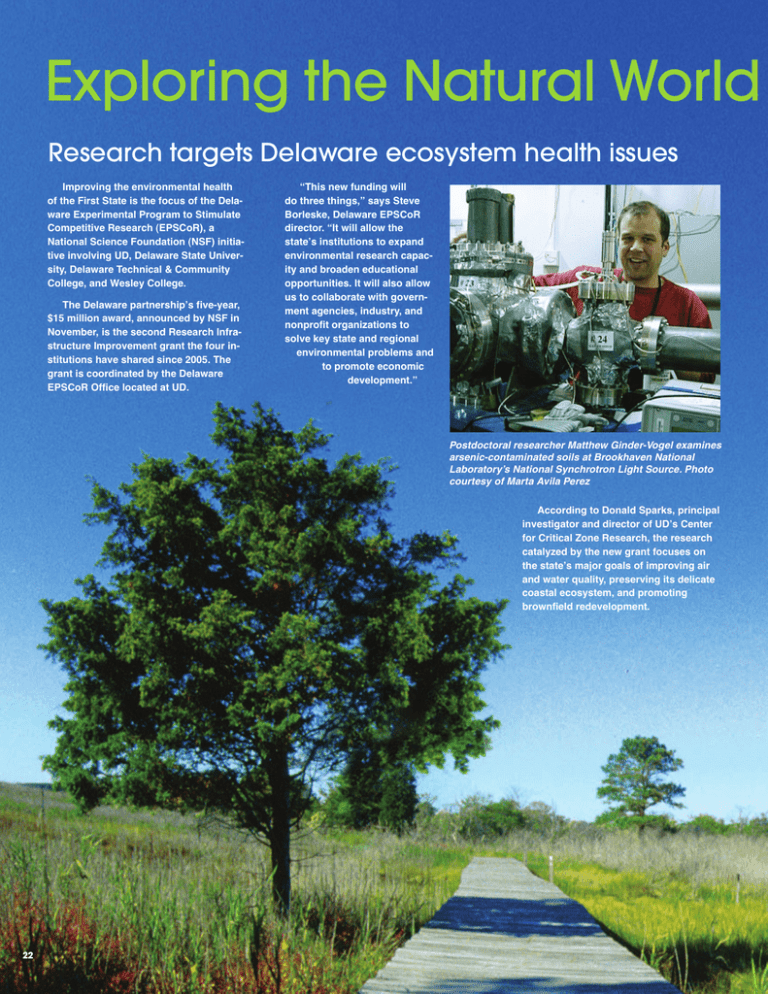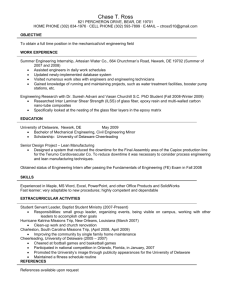Exploring the Natural World Research targets Delaware ecosystem health issues
advertisement

Exploring the Natural World Research targets Delaware ecosystem health issues Improving the environmental health of the First State is the focus of the Delaware Experimental Program to Stimulate Competitive Research (EPSCoR), a National Science Foundation (NSF) initiative involving UD, Delaware State University, Delaware Technical & Community College, and Wesley College. The Delaware partnershipʼs five-year, $15 million award, announced by NSF in November, is the second Research Infrastructure Improvement grant the four institutions have shared since 2005. The grant is coordinated by the Delaware EPSCoR Office located at UD. “This new funding will do three things,” says Steve Borleske, Delaware EPSCoR director. “It will allow the stateʼs institutions to expand environmental research capacity and broaden educational opportunities. It will also allow us to collaborate with government agencies, industry, and nonprofit organizations to solve key state and regional environmental problems and to promote economic development.” Postdoctoral researcher Matthew Ginder-Vogel examines arsenic-contaminated soils at Brookhaven National Laboratory’s National Synchrotron Light Source. Photo courtesy of Marta Avila Perez According to Donald Sparks, principal investigator and director of UDʼs Center for Critical Zone Research, the research catalyzed by the new grant focuses on the stateʼs major goals of improving air and water quality, preserving its delicate coastal ecosystem, and promoting brownfield redevelopment. 22





